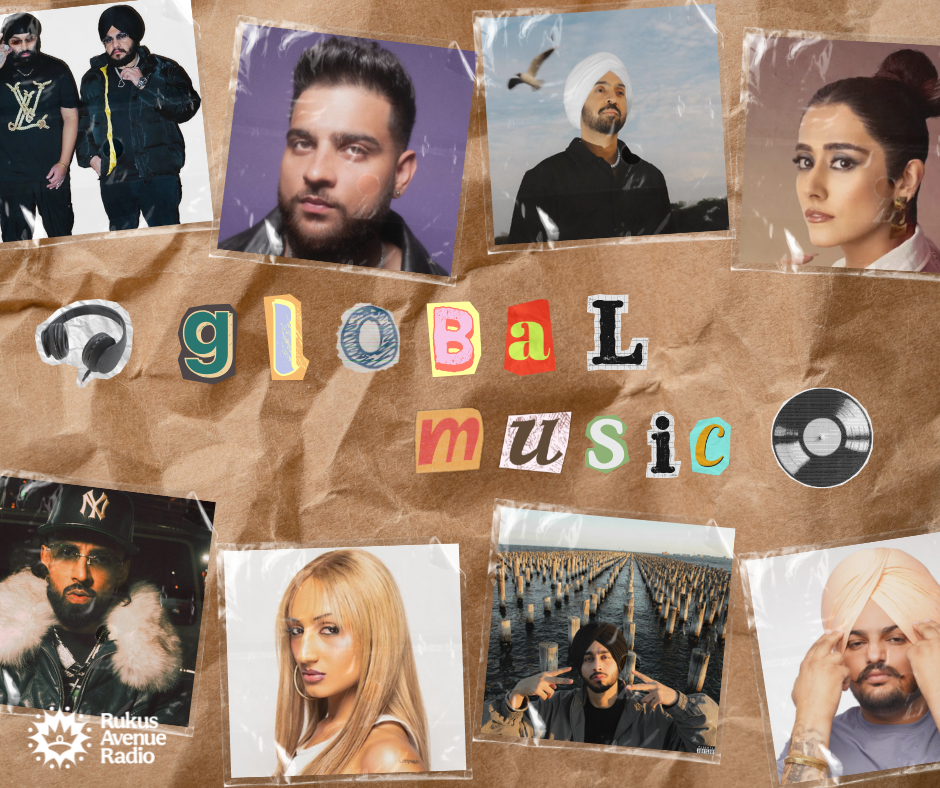Why South Asian Music Is Definitely Having A Moment in 2025
If your playlists have started hitting differently lately—with tabla drops, dhol beats, Hindi or Punjabi hooks sliding into hip-hop, or a Bollywood sample mid‑set—you’re not imagining it. South Asian music is having a full-blown global moment. And it’s being driven by a generation that’s proud of their roots and unapologetically global.
1. A diaspora ready to be loud
Over the last few decades, North America has seen a huge influx of South Asians—especially Indian immigrants—into cities like Toronto, Vancouver, New York, and across California. In Canada alone, over 2.5 million people identify as South Asian, with Indians being the largest visible minority group. In the U.S., over 4.8 million Indian Americans are creating second-gen cultures that blend Bollywood with Beyoncé, and bhangra with bass drops.
This means entire generations of young creatives who speak the language, know the culture, and now? They’ve got the stage.
2. Small community, massive global reach
Even though South Asians make up a relatively small portion of the population, their online presence, tight-knit communities, and global connections turn niche fandoms into global movements. From weddings to warehouse parties, if you know, you know. And now? The world’s tuning in.
3. Stadium tours are the new standard
Let’s talk numbers. Indian artists are packing venues like never before.
Karan Aujla’s shows in India hit upwards of 20,000+ fans, with appearances from artists like AP Dhillon and Divine.
AP Dhillon’s India tour raked in over ₹10 crore (~$1.2 million) in ticket sales in minutes.
And Diljit Dosanjh’s Dil-Luminati global tour? Pure history. A full-on multi-million dollar production hitting stadiums across continents.
These aren’t just concerts—they’re cultural events, packed with multilingual crowds who know every word.
4. The rise of South Asian collectives
Beyond the stars, a new wave of collectives is taking over. Think:
No Nazar and Spice Global in LA
Indo Warehouse redefining club nights
Electric Desi, Yung Singh, and Jawani 4 Ever curating underground Desi rave culture
These crews are throwing events that sell out in hours, performing at global festivals like Coachella, and shifting what it means to be South Asian in music. They mix Hindi, Tamil, Punjabi, Urdu, and everything in between with house, techno, hip-hop, and R&B—making music that’s both homegrown and future-forward.
5. The mainstream is watching
From Timbaland (who's been sampling Indian sounds since the '90s) to rising global producers like TroBoi, South Asian music is no longer something you stumble upon—it’s influencing the mainstream. You hear it in club sets, fashion shows, and collabs dropping on Spotify New Music Friday.
Bottom line: This isn’t a “trend.” It’s a cultural shift. With second-gen confidence, streaming power, and a whole lot of swag, Indian artists are breaking barriers and soundtracking the world.
Whether it’s a house remix of a Bollywood classic, a stadium tour with panjabi hooks, or a Coachella set with tabla and techno—we’re witnessing the global remix of Indian music culture. And trust: this moment? It’s only just getting started.

